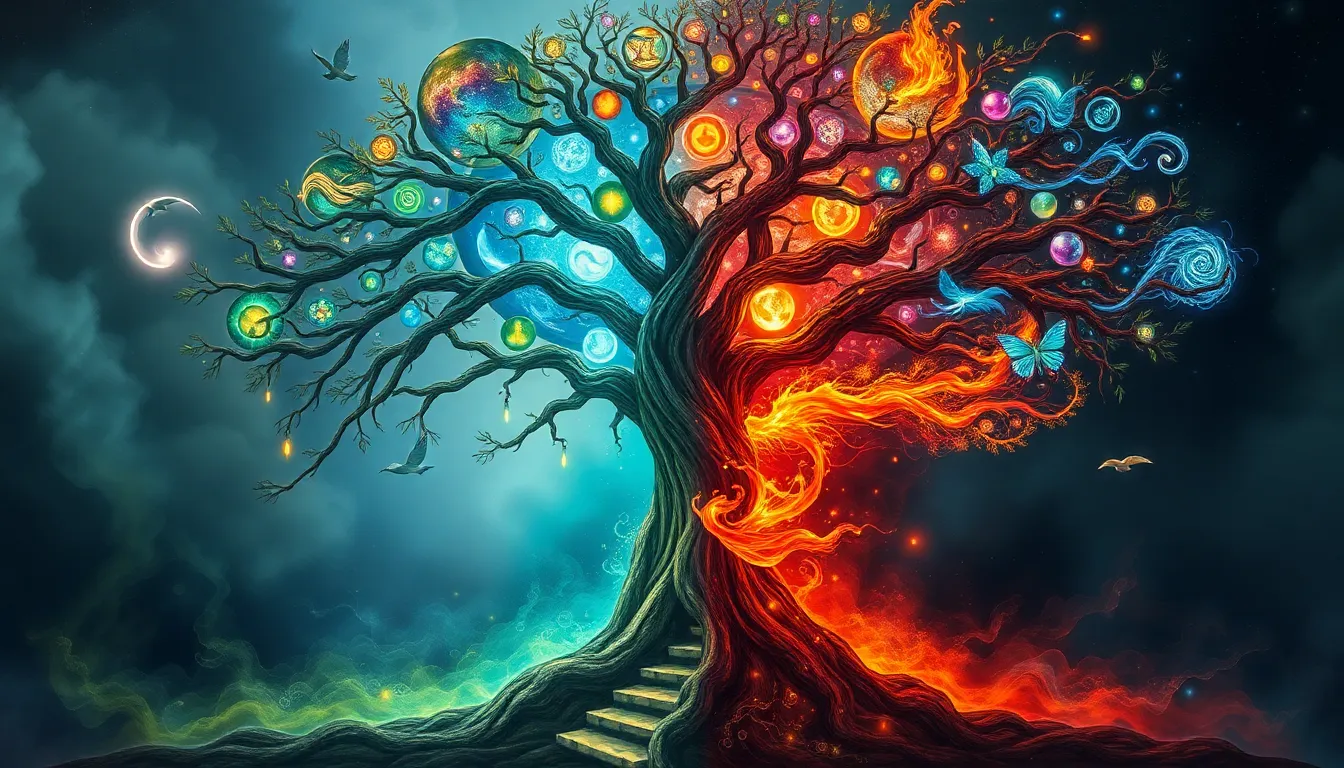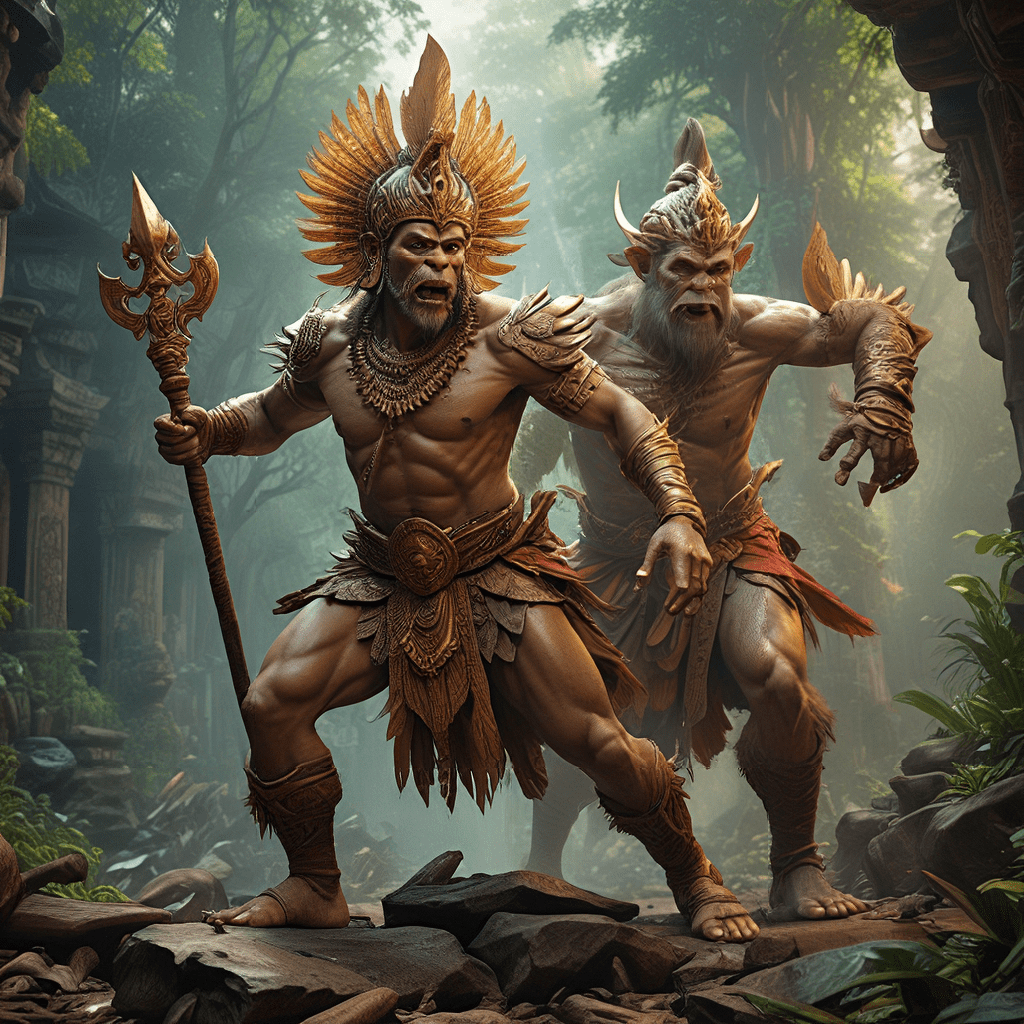Sailing the Waters of Myth: Legendary Flood Tales from Around the World
1. Introduction: The Universality of Flood Myths
Flood myths are narratives that recount a great deluge, often sent by deities as punishment or as a means of cleansing the earth. These stories span across various cultures and civilizations, reflecting a shared human experience related to catastrophe and survival. The significance of flood myths lies not only in their storytelling but also in the moral and philosophical lessons they impart, serving as a means for societies to explain natural disasters, cosmic order, and human behavior.
2. The Epic of Gilgamesh: Mesopotamian Roots of Flood Legends
One of the earliest known flood narratives is found in the Epic of Gilgamesh, a cornerstone of Mesopotamian literature. In this epic, the character Utnapishtim is forewarned by the god Ea about an impending flood meant to destroy humanity. He builds a large boat and saves his family and samples of all living creatures.
This tale is significant as it reveals the relationship between humans and the divine and showcases themes of mortality and the quest for immortality. The Epic of Gilgamesh predates the biblical story of Noah and has influenced many subsequent flood narratives, demonstrating the interconnectedness of human storytelling across cultures.
3. Noah’s Ark: A Biblical Perspective on Flood Narratives
The story of Noah’s Ark is perhaps the most well-known flood myth in the Judeo-Christian tradition. In the Book of Genesis, God observes the wickedness of humanity and decides to cleanse the earth with a flood. Noah, a righteous man, is instructed to build an ark to save his family and pairs of every animal species.
This narrative encapsulates themes of salvation, faith, and divine retribution. Noah’s unwavering obedience illustrates the importance of faith in the face of impending doom. Moreover, the covenant God establishes with Noah after the flood symbolizes hope and renewal, reinforcing the cyclical nature of life after destruction.
4. The Hindu Flood Myth: Manu and the Fish
In Hindu mythology, the tale of Manu and the great flood presents a unique perspective on creation and destruction. Manu, the first man, is warned by a fish (an incarnation of the god Vishnu) about an impending flood that will destroy all life. He builds a boat and saves the seeds of all plants and species of animals.
This myth emphasizes the themes of duty, responsibility, and the cyclical aspect of life. The story of Manu serves not only as a tale of survival but also as a reminder of the interconnectedness of all living beings and the divine influence in the preservation of life.
5. The Native American Perspective: The Great Flood in Indigenous Cultures
Many Native American tribes possess their own flood myths, each reflecting their unique cultural values and relationship with the natural world. For example, the Ojibwe tribe recounts a story of a great flood that wiped out most of humanity, leaving only a few survivors who repopulated the earth.
These narratives often illustrate important lessons about respect for nature, community, and the consequences of human actions. Flood myths in Indigenous cultures frequently emphasize the need for harmony with the environment, showcasing a profound understanding of ecological balance.
6. The Greek Flood Myth: Deucalion and Pyrrha
The Greek myth of Deucalion and Pyrrha bears striking similarities to other flood narratives. In this tale, Zeus decides to flood the earth to punish humanity for its wickedness. Deucalion, warned by his father Prometheus, builds a vessel and survives the deluge with his wife, Pyrrha.
After the flood, they repopulate the earth by throwing stones over their shoulders, which transform into humans. This myth embodies themes of rebirth and renewal, with the flood serving as both a punishment and a chance for a fresh start, highlighting the duality of destruction and creation inherent in many flood tales.
7. Flood Myths in Asian Cultures: The Tale of Gun-Yu in Chinese Lore
In Chinese mythology, the story of Gun and Yu the Great describes a catastrophic flood that threatened to engulf the world. Gun attempts to control the waters but fails, leading to his demise. Yu, his son, succeeds by employing engineering techniques to manage the floodwaters, ultimately becoming a legendary figure in Chinese culture.
This myth underscores the importance of human ingenuity and perseverance in the face of natural disasters. The efforts of Yu not only reflect the value placed on hard work and resilience but also mark the beginnings of Chinese civilization’s relationship with water management and agriculture.
8. Oceanic Myths: The Polynesian Flood Stories
Polynesian cultures have rich traditions of flood myths that often highlight the connection between the people and the sea. Various stories speak of great floods caused by angry gods or natural disasters, leading to the survival of certain individuals or groups.
For instance, some tales describe how specific islands were formed or destroyed by floods, reflecting the maritime culture and the significance of the ocean in Polynesian life. These narratives serve not only as cautionary tales but also as foundational myths that shape cultural identities and beliefs about ancestry and land.
9. Modern Interpretations and Adaptations of Flood Myths
In contemporary literature and media, ancient flood myths continue to resonate. Authors and filmmakers draw on these narratives to explore themes of environmental catastrophe, survival, and human resilience. Works such as Life of Pi and The Road reflect on the human condition in the face of disaster, drawing parallels to the age-old stories of floods.
Moreover, the relevance of these myths in today’s environmental context highlights the urgency of addressing climate change and natural disasters. They serve as reminders of humanity’s vulnerabilities and the need for collective action to protect the planet.
10. Conclusion: The Enduring Legacy of Flood Myths
Flood myths are more than just stories of disaster; they encapsulate human fears, hopes, and the quest for understanding our place in the world. These narratives, shared across cultures, provide insight into our collective consciousness and moral values.
As we reflect on these legendary tales, it becomes clear that they unite diverse cultures through the common theme of floods—serving as a testament to the resilience of humanity. By appreciating these shared narratives, we can cultivate a deeper understanding of our interconnectedness and the lessons they impart for future generations.




